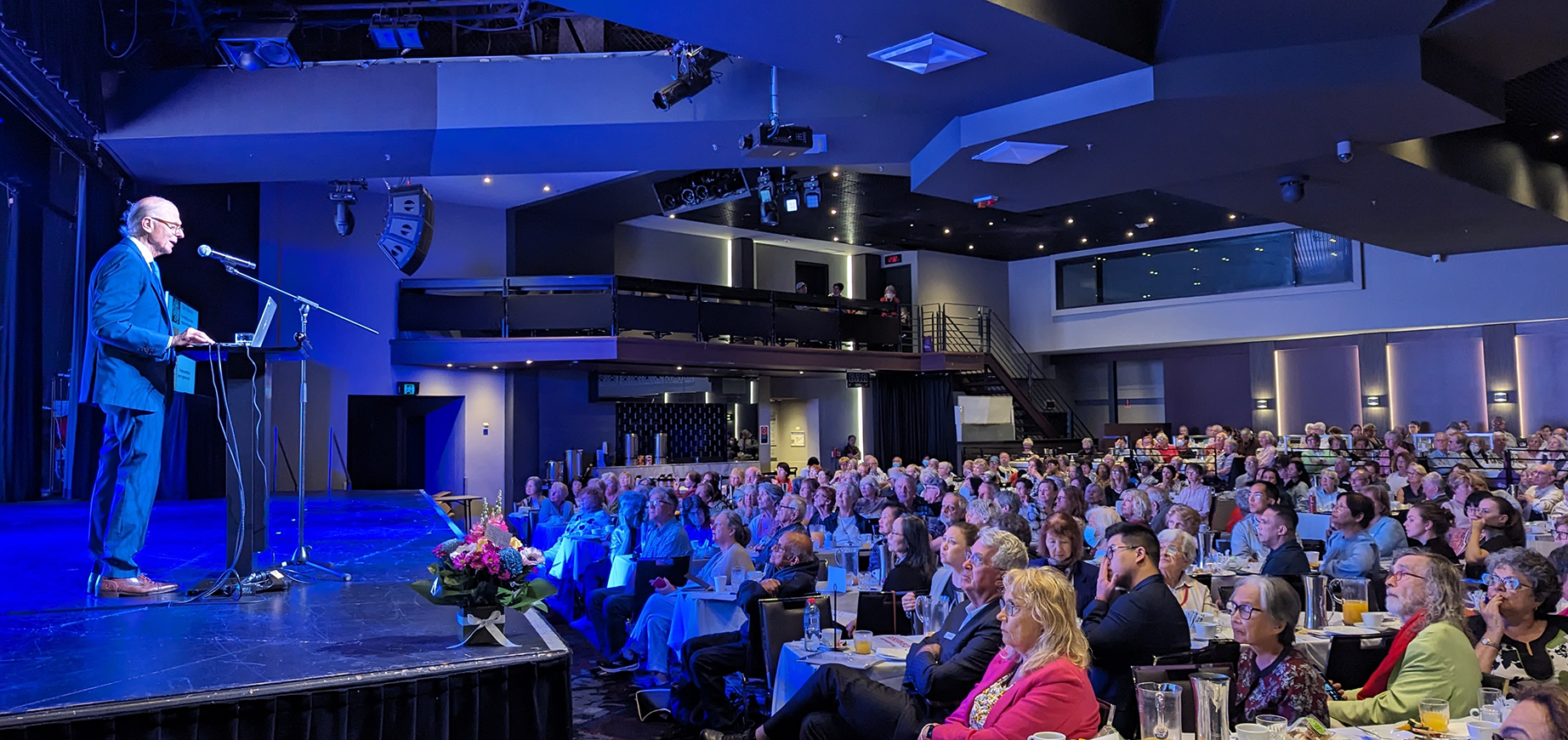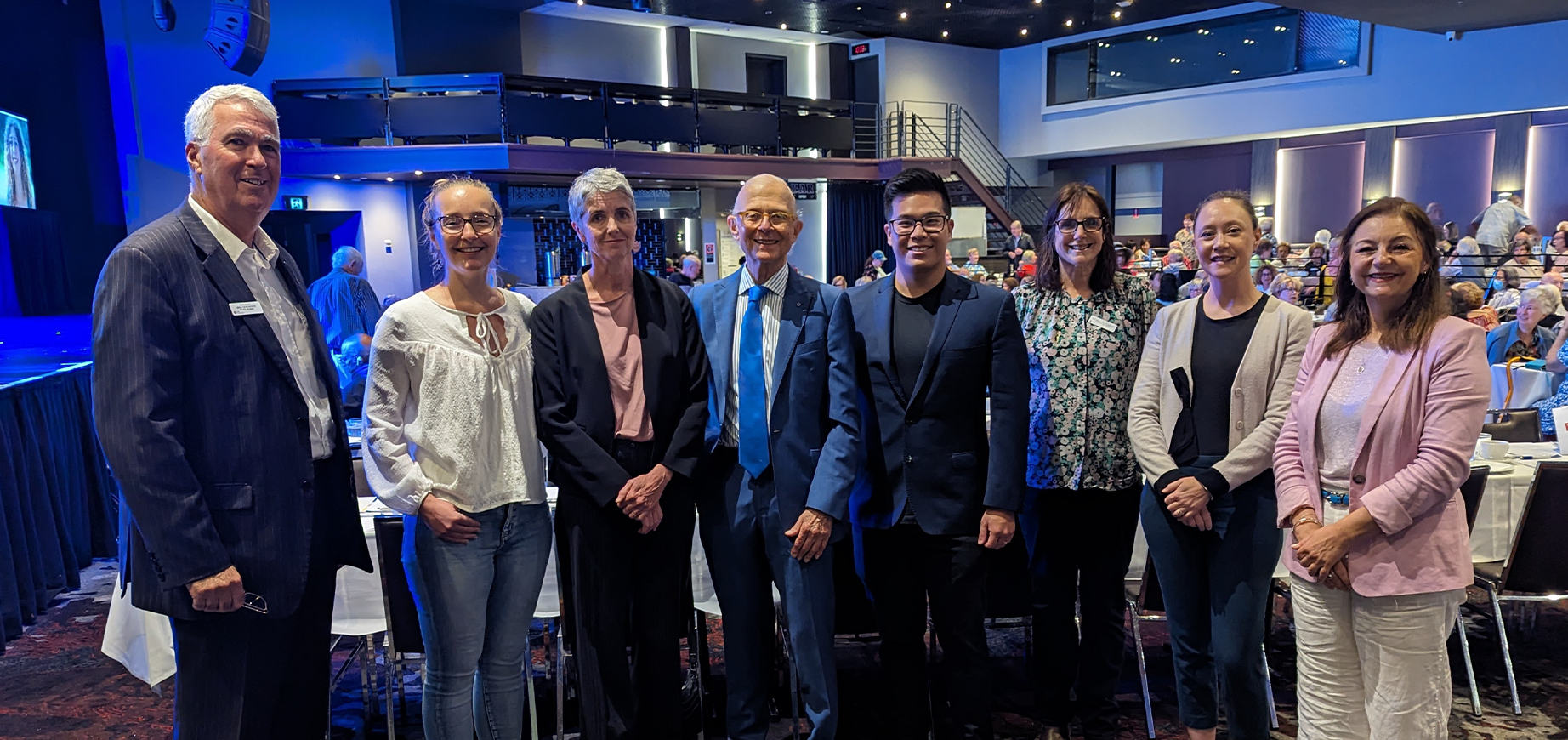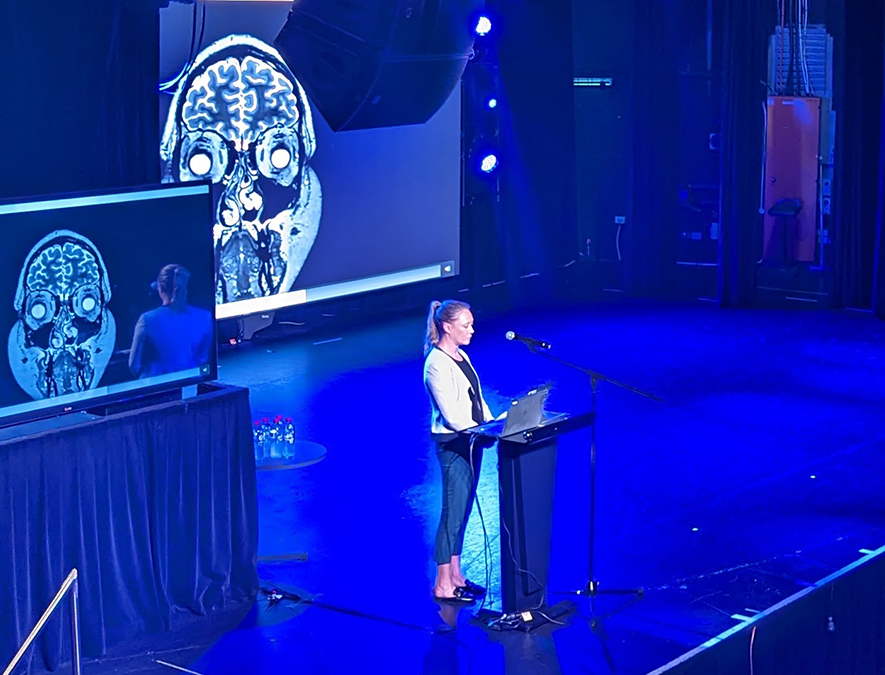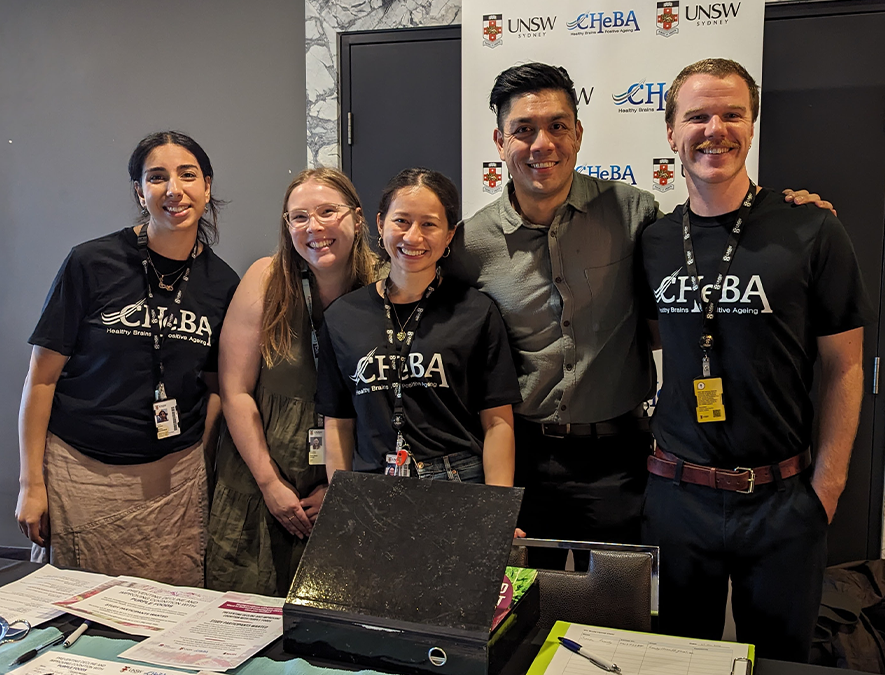31 Oct 2023

HEIDI DOUGLASS | h.douglass@unsw.edu.au
More than 500 seniors filled the auditorium at The Juniors in Kingsford to discover the intrinsic links between their brains, bodies and better ageing. The annual event held on 25 October, was hosted by South Eastern Sydney Local Health District’s Older Persons’ Mental Health Service, in partnership with Randwick City Council and the Centre for Healthy Brain Ageing (CHeBA).
With people over the age of 65 now outweighing people under the age of 15, the theme of this year’s public event was Better Brains, Better Bodies Better Ageing, which enticed nearly 600 registrants and boasted a series of expert speakers in the field of purposeful ageing, including Honorary Medical Officer of the Older Persons’ Mental Health Service, Prince of Wales Hospital and Co-Director of CHeBA Professor Henry Brodaty AO.
“This year’s forum was an enormous success,” said Professor Brodaty.
The official opening of the forum was made by Dr Greg Levenston, Director of the SESLHD Board, who acknowledged that October is mental health awareness month and an opportunity to reflect on our health and make an investment on our wellbeing.
“Early intervention with mental health is vital,” said Dr Levenston. “Prevention is better than cure and should always be our first priority.”
The event was attended by the Mayor of Randwick, Philipa Veitch, who provided an inspiring welcome address, and noted that “creativity, physical activity, socialising and getting involved in community is a real tonic”.
 |
|
Pictured above (left to right) speakers from the forum: Dr Greg Levenston, Professor Kim Delbaere, Philipa Veitch, Professor Henry Brodaty, Dr Sandersan Onie, Daniella Kanareck, Dr Katya Numbers and Gwen Korebrits |
Navigating mental health services for older people can be complex and more support is needed, but this forum is one of the most important things we can offer the community.
Philipa Veitch
Leader in the support of mental health, The Black Dog Institute, was represented by Dr Sanderson Onie, NHMRC Centre for Research Excellence in Suicide Prevention Post-Doctoral Fellow, who covered the importance of utilising the internet to maintain social connection, and the benefit it can provide to mental health.
Dr Onie stressed the importance of maintaining meaningful relationships and in regard to online scammers advised “we should not be afraid, but cautious”.
Dr Katya Numbers, Post-doctoral Research Fellow at CHeBA and strong advocate against ageism, highlighted the steps seniors can take to tackle anxiety and depression. Dr Numbers said highlighted three key components to not just navigating life but thriving: purpose, connection and activity.
Dr Numbers’ talk focused on developing skills to overcome or avoid depression and anxiety and stressed that finding purpose is crucial to reduce feelings of isolation.
 |
 |
|
Dr Katya Numbers speaking on the topic of What can I do to beat anxiety and depression? |
CHeBA was well represented at the event with information on our latest studies. |
On the significance of falls, Professor Kim Delbaere – an expert in the study of falls and both Senior Principal Research Scientist at Neuroscience Research Australia (NeuRA) and Director of Innovation & Translation at the Falls, Balance & Injury Research Centre – covered exercise tips for falls prevention and healthy ageing.
“Of people 65 and over, 1 in 3 people will have a fall, and 1 in 2 will fall again,” said Professor Delbaere. “Fear of falling can result in social isolation and loneliness and the single most important thing you can do to prevent falls is exercise, including exercises to improve balance.”
Exercise has shown to offer a 42% reduction in risk, and it’s superior to any medication.
Professor Kim Delbaere
The event also shared insight from CEO and Co-Founder of Dance Health Alliance Gwen Korebrits, particularly in relation to dance as a form of medicine.
Korebrits key message was to “we were born to move. Movement is your medicine.”
Final speaker was Professor Henry Brodaty AO, who advocated that prevention was better for cure. He provided an update on the latest in dementia research including new diagnostic tools and antibodies against the toxic A-beta protein that builds up in the brains of people with Alzheimer's disease.
“The new blood test antibodies against the A-beta protein are exciting and may be game changers, there is a lot more we need to know about them. It is likely it will be at least a year until they are available in Australia.”
“These new medications offer hope, but we need to be aware of possible side effects, their cost and the need for multiple investigations and 2-4th weekly intravenous infusions.”
Professor Brodaty, author of over 60 books or book chapter and over 800 refereed journal articles a leader in prevention of dementia, said “that over 40-50% of the risk for dementia can be attributed to risk factors that we can all do something about such as exercising, eat healthily, keeping mentally and socially active, managing high blood pressure, and, if hearing is declining, wearing hearing aids”.
He challenges the audience to heed these recommendations, “It is never too late to start”.
